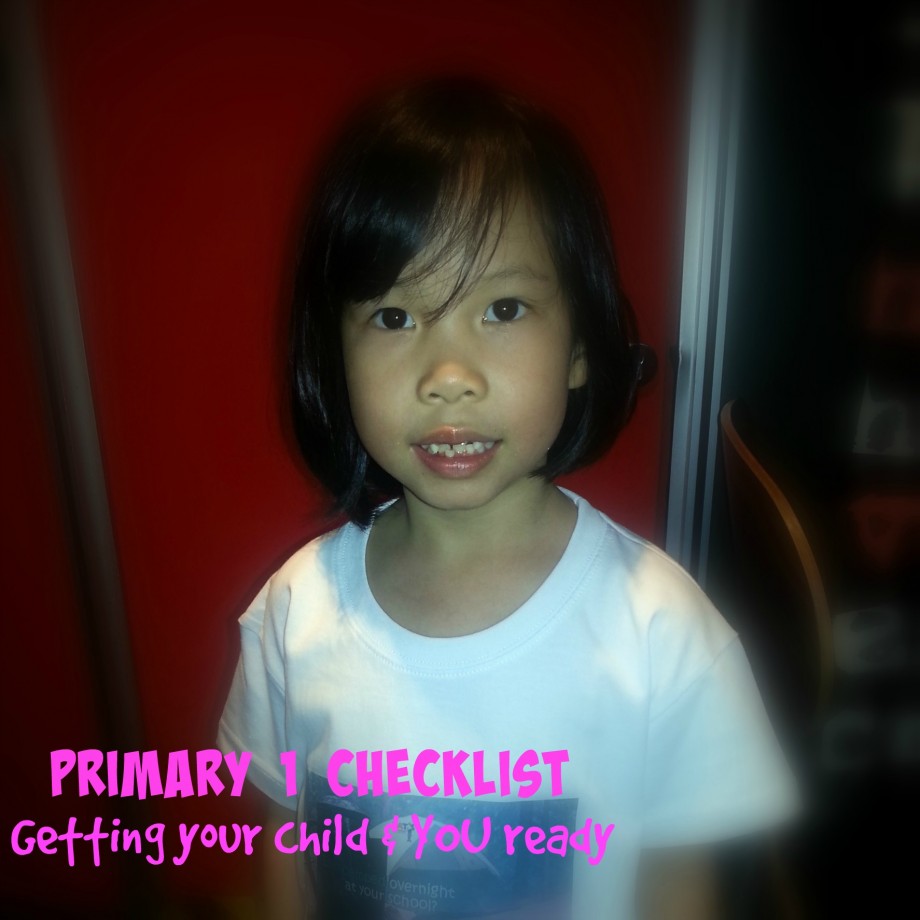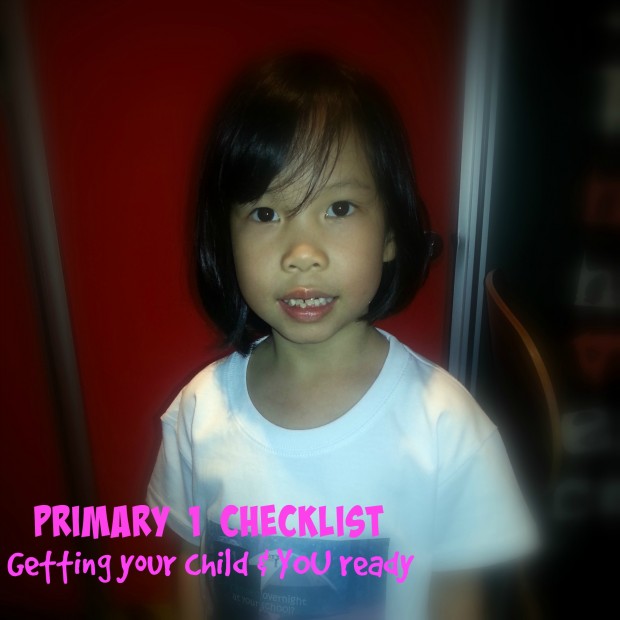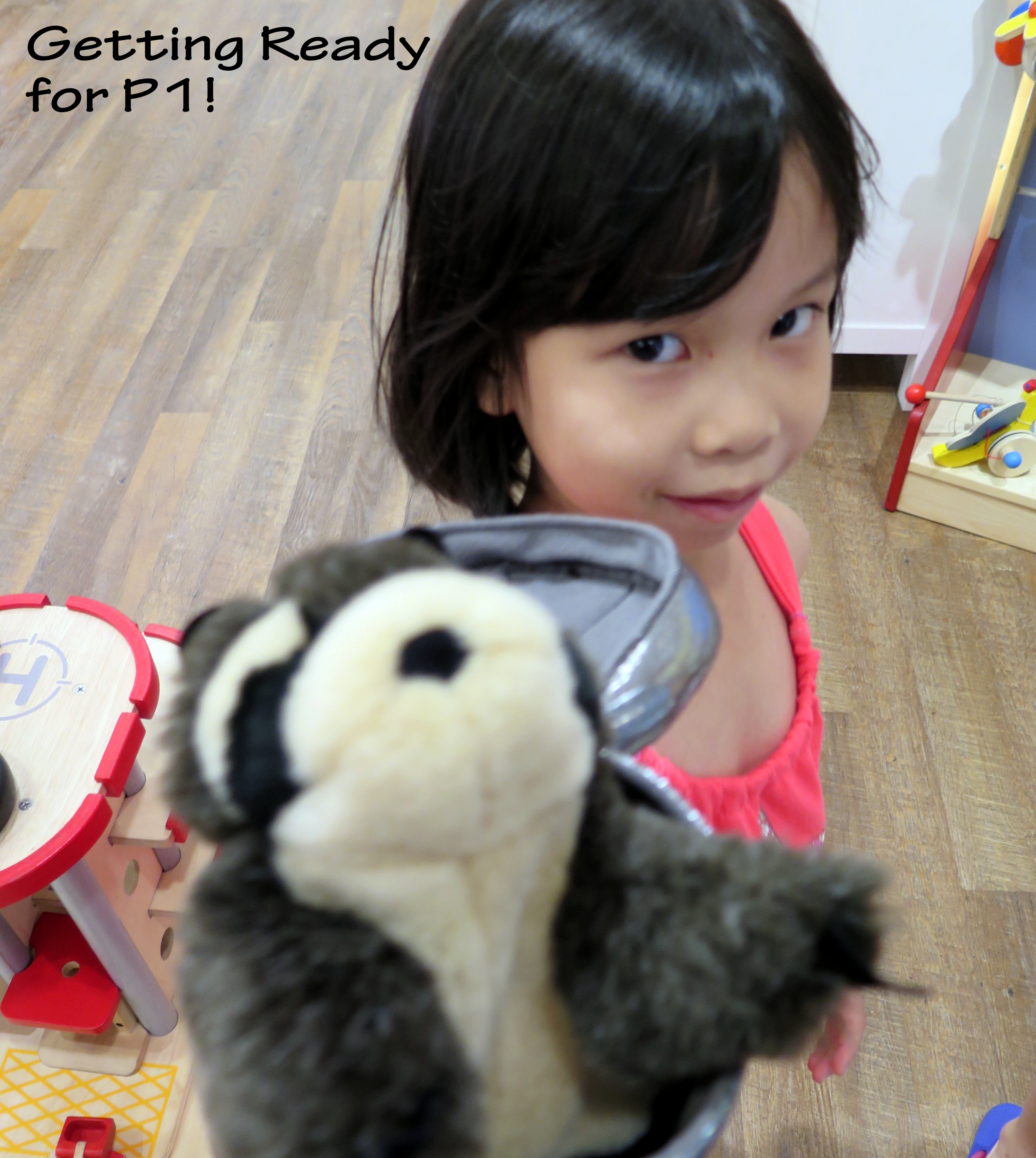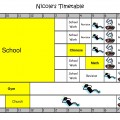The Primary One Checklist
I’ve my last little one going Primary One next year, and I really want to ensure I’ve covered all bases, (for me and for her!) and be ready for the Big School! Some of the best people to ask for advice are those in the education industry. So I asked the teachers at Jan & Elly to advise what I can do as a parent, to prepare my child for P1. (afterall, they see the kids graduate from Kindy to Primary Sch each year!)
Here’s what we can do to prep our kids for what official school entails. It is a milestone for us parents too!
1. Understand that the initial school years are a joint effort for both child and parent
School today, has evolved so much that it is almost impossible to compare the way lessons are taught, or what is required of students. These days, parents are expected to play a prominent role in their child’s education. With the new approach in collaborative learning that the Ministry of Education (MOE) is trying to push, parents need to be able to step in and support their child’s curiosity. No longer will students ace exams by simply being book smart. The new curriculum aims to nurture students who are worldly, knowledgeable and innovative.
2. Get acquainted and involved in your child’s Primary One curriculum
Just like a job interview, researching, understanding and showing a keen interest in your child’s curriculum will give him a head start in his academics. Find out what the Primary One syllabus entails, and what your child can do to get ready for that. As a general guideline, Primary One students should have an adequate grasp in reading and writing. They should be able to read and show a good understanding of short stories and passages. In terms of writing, they should be able to write simple sentences about a picture or an idea.
While most parents overlook this, children should also be able to hold simple conversations and verbalise their thoughts. These are skills that will be taught in Primary One. Children at this age naturally, and instinctively develop these skills without much problem. Of course, there is no harm practicing with your child beforehand, but it is important to ensure lessons they learn are always enjoyable. With that being said, be careful not to let this overwhelm you or your child. Most kids “magically” read, write and speak better when they enter Primary One. We like to call this the “group power”.
Mr Noel Chia, a lecturer at the National Institute of Education (NIE), explained it this way, “Learning during the early childhood period is very much informal, intuitive and spontaneous for all young children – learning is ‘caught’ and not ‘taught’.” So don’t fret if your child is lagging behind. Support him where necessary, and let him grow at his own pace. The last thing we can do is burden and worry him with school work that he will learn and grasp over time.
3. Put academics aside and focus on good values, social etiquette and great attitude
These are the characteristics that your child will carry through from a young age right up to adulthood. Instilling good, strong values will make your child treat his teachers and peers with respect. Children learn most things – this includes the good and the bad, in school. At this age, they are easily influenced and tend to take after people they admire. By instilling values and good habits in them, they will be able to fall back on their own judgment and stand up for themselves. It is far more important to teach them these traits, and build a good attitude so they grow to be lifelong learners who are disciplined, easy-natured, humble and thirsty for knowledge.
4. Teach them independence
For parents, this may be the hardest thing to do. Letting go and watching your child pick himself up can be heart wrenching, frustrating, bittersweet and a rollercoaster ride. But it is the best and most rewarding thing you can do for your child. Independence at this age could mean simple things such as packing his own school bag, taking note and remembering assignments and homework or forms that need to be acknowledged by parents, or simply buying his own food at recess.
If they have problems in their school work, or with friends or teachers, try not to spoon-feed them with solutions. Let them research, ask questions and think on their feet, on how they can overcome these obstacles. Prompt them if necessary but stop yourself from telling them what to do. You’ll be thankful for this as they grow older – this independent streak will become a life skill they will learn to value.
5. Build a routine
Once school starts, you’ll notice that it’s not as easy to plan activities, extra classes, or enjoy simple rest and relaxation with your child, all while juggling. But that does not mean you shouldn’t do all of these things! The key is in planning it right and managing both yours and your child’s expectations. Nobody wants to wake up at 5am in the morning only to find undone homework! While school and homework are now priorities, play and rest should also be somewhere at the top of the list.
Build a realistic routine that will help your child complete his homework and any extra activities, but still give him time to enjoy his favourite TV show, play activity or hobby. It is said that it takes approximately 21 days to build a habit, so once you’ve gotten your routine, stick to it. It gets easier along the way. Incorporate a mix of academic activities, sports, enrichment classes, family time, and pure rest in your child’s schedule. You’ll be surprised at how much you can achieve with proper planning.
So there you go. A simple checklist with 5 key guiding areas. We know you want the best for your child. So do we. Some days may be tougher than others, but at the end of the day, remember to enjoy the ride.
Cheers to a milestone and wonderful memories ahead!
– The Jan & Elly Folks
*This is a sponsored series of conversations with Jan & Elly English Language School. Jan & Elly is a supporting partner of Singapore’s Speak Good English Movement (SGEM). They have been awarded the “Best of the Best Enrichment & Learning School” title by Parents World Magazine for 2011-2012 and 2012-2013, and most recently, the Asia Pacific Brands Award 2014 conferred by the Trade & Industry Association (Singapore) and Asia Business Journal.








I don’t envy having to deal with all of this. I get tired just looking at it. Although I love that they say it is more important to focus on social skills. At that age, I agree.
Those are great tips. Parents helping children in the initial years of school is so important.
This is a great list! We found that being intentional with our routine worked quite well. Everything else falls into place when the structure and schedule are already understood.
A good routine is important because it sets the foundation for learning!
Those are all good tips and it’s a great checklist. I love the idea of independence, even though it’s hard at first and enjoying the ride is key!
I think we spend too much focus on curriculum and not enough on living skills so I very much agree with #3 on your list!
I love reading about how involved you are with your children’s schooling. As a teacher it brings joy yo my heart to see caring and involved parents.
I think you definitely do want to be very hands on and in touch with what’s going on. I think it’s best to stay apprised of every aspect but encourage independence as you suggested.
Great list and advise. Establishing a well routine that the whole family can follow is really important for us and helps our house run more smoothly. If something is thrown off, the next day just seems off too.